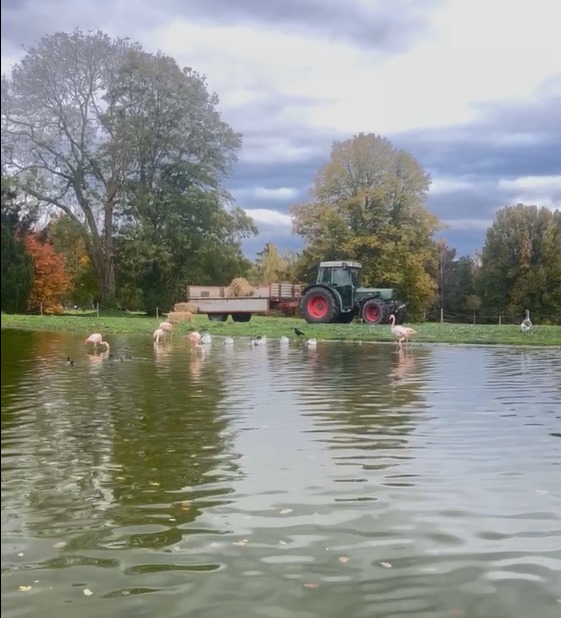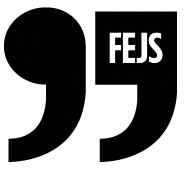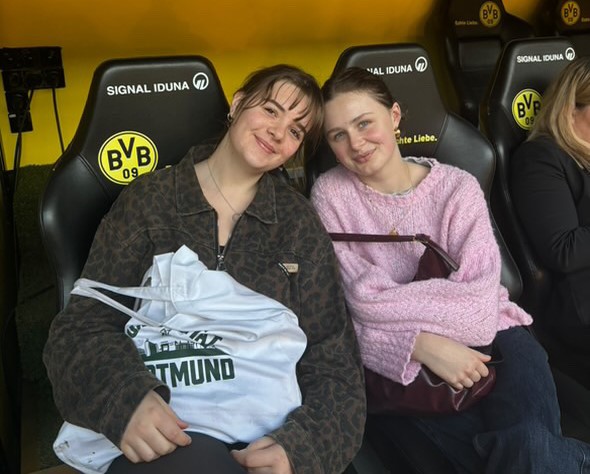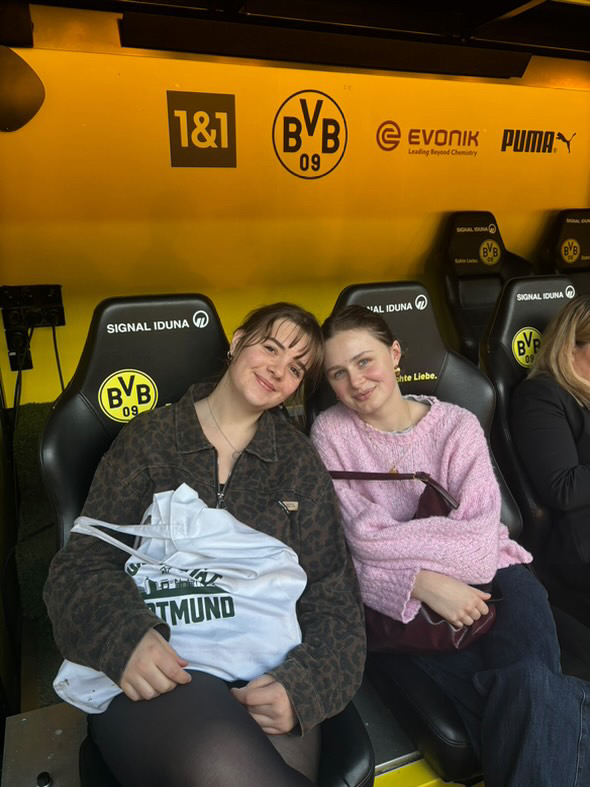FEJS GA DORTMUND ‘24: The Power of Investigative and Slow Journalism
Author: Isobel O’Mahony, Sheffield UK
‘When in Dortmund’ sums up the FEJS GA to many who attended this year. It captures the craziness, the excitement, the honourable aura of an event that simultaneously taught us and gave us some unbelievable stories to take home in our suitcases (along with lots of the one euro beer from the student bar).
The talks and workshops were incredibly informative and looked at journalism from a new and upcoming angle. As we currently thrive in a world of short form content, slow journalism is a quiet pony trekking below and creating some truly brilliant work.
When in Dortmund … See flamingos!
Coming in from Sheffield, Dortmund was a very familiar city. They have both been given the name ‘steel city’ (or Stahlstadt) and are rather industrial places with an abundance of green. Westfalenpark is definitely one to visit if you ever find yourself in Dortmund, with (fairly) safe cable cars, exotic plants and believe it or not – flamingos.


Central Dortmund definitely lives up to the industrial name, but that’s not to say it isn’t without its charms. The high street has any shop you’d need, and further out from the centre you’ll find a rainbow of colourful houses that paint the fashion district. I would also highly recommend visiting Dortmund zoo if you’re in town, and fancy getting a selfie with a meerkat.
Dortmund was a great city to host FEJS, as you felt you were cracking an untapped source (as Dortmund is rarely discussed in England despite football). Whilst it may not be the most ‘aesthetic’ city around, it had lots of beauties to discover and culture to take in.
When in Dortmund … Learn something new
There were some fabulous guests for our lectures from all types of backgrounds and I can definitely say I left Dortmund airport knowing and caring more about the future of slow journalism. The highlight talks for me were Andy Eckardt from NBC Worldwide and Jelena Cosic who worked on the infamous Pandora Papers, and is an ex-FEJS participant.
Andy Eckardt really focused on getting us interacting with both each other and the subject of slow journalism. He emphasised the importance of taking pride in your work/being confident in yourself and that we as the new generation of journalists have the advantage to direct the media with our special interest and skills. Andy explained that the big news organisations especially want journalists trained in multimedia – and definitely efficient in social media.
We were introduced to the work of NBCU academy, “a free, award-winning education program for developing new skills and advancing careers in journalism, media and tech”. Finally, he gave us an important mission that I believe most journalists carry with them, “give a voice to those who otherwise go unheard.”
Jelena Cosic was leading a talk on investigative journalism, and the intense changes that the field can make. She participated in FEJS before becoming the successful, reputable journalist she is today and said that she “wouldn’t have gotten here without FEJS”.
Jelena is a part of the ICIJ, the International Consortium of Investigative Journalists, who worked on the infamous Pandora Papers, released in 2021. The Pandora Papers was made up of over 11 million documents and exposed “a complex web of tax havens, shell corporations, and offshore accounts that hide the true ownership of billions of dollars of assets of politicians, celebrities, business people, and criminals.”
We talked through the process of putting together the papers and what it’s like to be an investigative journalist in such a heavy-duty situation. Leaks were a recurring theme throughout the talks; as a useful journalism tool they can provide lots of ‘meat’ for your stories, but could also pose danger to your work. Jelena’s talk was incredibly inspiring on how to develop an investigative mindset, and how valuable working together is. She said, “You’d be amazed how much people are willing to risk to make a change”, which really puts what we do as journalists in a hopeful perspective.
When in Dortmund … Tour the most beautiful football stadium in the world?
As this was my first time attending FEJS, and my first time in Dortmund/Germany, I didn’t know what to expect in terms of activities outside of the lectures and workshops. However, the OC and the city itself did not disappoint.
The city tour was the highlight for me; we visited a brewery and got some cheeky free samples, saw the proper industrial sites and got a walking tour of ‘the most beautiful football stadium in the world’ – Signal Iduna Park. It really is a majestic atmosphere and the tour is done incredibly well, with us walking onto the pitch as if we were the team and getting to take pictures in the manager’s seats. Seeing the sun set over the stadium is definitely a core memory for me.
For other activities, we had karaoke night, had a fancy meal and got to make lovely new friends over one euro beers. Whilst the schedule was really jam-packed for the event, these activities showed us the best of Dortmund and allowed us all to make a few more amazing memories.
When in Dortmund … Sell English shortbread for 120 euro
The auction is one of the defining moments of an FEJS event, and I’m happy to report that we, the English delegation, absolutely smashed it. You’d think a harmless, good-natured auction would be a wholesome activity, but competitiveness got the best of many.
The student village was shaking with roars over wine from Porto, a Doncaster Rovers hat and Finnish liquorice to name a few. It was brilliant to see everyone get in the mad spirit of things, and simultaneously spend euros that support participants of FEJS, and the organisation itself.
When in … What the future holds
There was so much more to the trip that I could sit here and bang on about, but in summary it was a brilliant, eye-opening experience to FEJS and the world of young journalists. I can’t wait to see what the next cities bring to the table (Krakow, Poland and Porto, Portugal) and to see such a talented set of young minds work together again.




